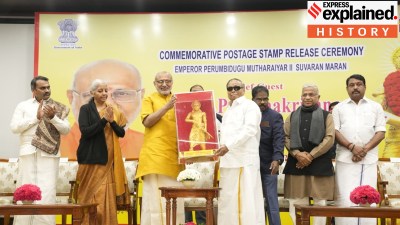The Pune Metro is planning to introduce feeder bus services with the help of Pune Mahanagar Parivahan Mahamandal Ltd (PMPML) to help commuters reach their destinations from the stations seamlessly.

“The Pune Metro wants maximum citizens to use the Metro rail to commute in the city. However, the last-mile connectivity is a major issue. So an expert agency will study and plan a high-quality bus feeder system as a key component of a comprehensive effort to enhance the use of public transport and increase the ridership,” said Chandrashekhar Tambekar, Pune Metro spokesperson, on Wednesday.
The expert agency would carry out the planning for the feeder bus transportation for the Pune Metro Rail Project (Phase-1) and PMPML.
The Pune Metro Rail Project consists of a 33.215 km Metro corridor, 30 stations, and two depots. The entire stretch is divided into 2 alignments or corridors: the North-South Corridor is from the Pimpri Chinchwad Municipal Corporation (PCMC) to Swargate with 14 stations, and the East-West Corridor is from Vanaz to Ramwadi with 16 stations.
“The final output from the study will be a detailed feeder service planning and feasibility study that Maha Metro will use to coordinate and implement with the help of the PMPML. In the Metro system, the route is predefined, and connectivity to all parts of the city is impossible. So, the need for establishing a secondary system will leverage the public transport system and help augment the ridership of the primary system by providing proper connectivity. This supporting system is called a feeder system,” Tambekar said.
Maha Metro aims to enhance public transportation services by rationalising existing bus routes and procuring new buses to improve first- and last-mile connectivity, reduce congestion, and provide sustainable transport solutions, he explained.
Story continues below this ad
The expert agency will improve first-and last-mile connectivity for Metro users in Pune and PCMC, enable seamless multimodal integration with Maha Metro and other transit systems, provide access to high-quality, accessible, and sustainable transport services, and reduce traffic congestion by increasing public transport share, said Tambekar.
The work would be undertaken in two phases, with the first one include Feeder bus route enhancement feasibility plan for rationalizing existing city bus routes in collaboration with local transport authorities at Pune followed by big data analytics and AI-powered solutions to identify demand regions, design optimised routes and appropriate model which maximizes passenger coverage and monitoring and optimisation support during implementation to analyse the network’s performance.
Feeder bus enhancement plan
The feeder bus enhancement plan will primarily be a planning-oriented, feasibility study focused on estimating additional bus requirements to complement the Pune Metro network effectively. The insights gained will guide the strategic deployment of newly procured or existing buses along high-demand yet underserved corridors, ensuring targeted service delivery and improved last-mile connectivity.
The agency will also review existing transport planning, including the Comprehensive Mobility Plan (CMP) for Pune Metropolitan Region Development Authority (PMRDA), Pune, and PCMC master plans, City Development Plans (CDPs), Transit-Oriented Developmen (TOD) policy frameworks, and earlier DPRs. GIS datasets on road networks, metro alignments, PMPML bus routes, infrastructure, and utilities will be compiled to establish the base network.
Story continues below this ad
e-rickshaws likely for low-demand pockets
“GIS-based analysis of PMPML routes within 500m–6km of Metro catchments will be carried out. Metrics such as route frequency, load factor, and alignment overlap with the Metro will be reviewed. Under-served and poorly connected zones will be identified, and shared mobility modes (eg; e-rickshaws) will be proposed for low-demand pockets. Information regarding the road geometrics, road safety, and availability of bus stop infrastructure will be provided by Maha-Metro to the consultant,” Tambekar said.
He said the agency will propose a concept-level feeder system, including station-level bus service types such as circulators, short loops, frequencies, and vehicle sizing.
BJP leader Sandeep Khardekar said that the feeder bus service is very useful for commuters.
“The feeder bus service started by Minister Chandrakant Patil, who represents Kothrud Assembly, through a private agency at the SNDT Metro rail station, is receiving tremendous response. The buses ply on regular intervals during peak hours for free of cost as it is funded from the Local Area Development Fund,” he said. He said the feeder service gave a boost to the footfall of Pune Metro as more commuters started parking their two-wheeler and four-wheeler vehicles near the station and opting for public transport.
Story continues below this ad
“An efficient feeder bus service at each station is crucial for improving the efficiency of Metro rail,” said Khardekar.
City MP Murlidhar Mohol has recently stated that the 1,000 electric buses procurement approved by the Central Government for PMPML will help in providing feeder bus service to Metro commuters for last-mile connectivity.









